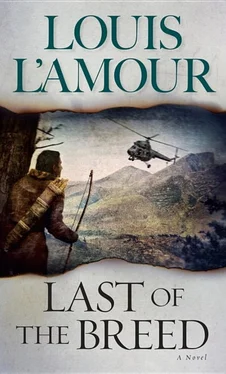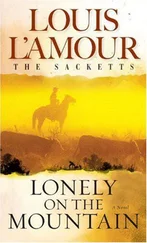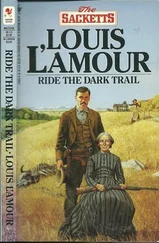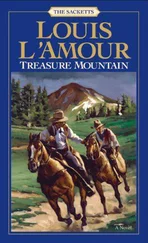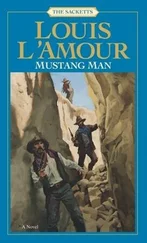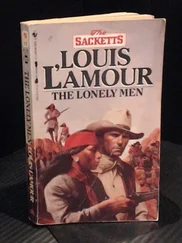Louis L'Amour - Last of the Breed
Здесь есть возможность читать онлайн «Louis L'Amour - Last of the Breed» весь текст электронной книги совершенно бесплатно (целиком полную версию без сокращений). В некоторых случаях можно слушать аудио, скачать через торрент в формате fb2 и присутствует краткое содержание. Город: New York, Год выпуска: 2010, ISBN: 2010, Издательство: Random House Publishing Group, Жанр: Триллер, Историческая проза, Приключения про индейцев, на английском языке. Описание произведения, (предисловие) а так же отзывы посетителей доступны на портале библиотеки ЛибКат.
- Название:Last of the Breed
- Автор:
- Издательство:Random House Publishing Group
- Жанр:
- Год:2010
- Город:New York
- ISBN:978-0-553-89935-1
- Рейтинг книги:3 / 5. Голосов: 1
-
Избранное:Добавить в избранное
- Отзывы:
-
Ваша оценка:
- 60
- 1
- 2
- 3
- 4
- 5
Last of the Breed: краткое содержание, описание и аннотация
Предлагаем к чтению аннотацию, описание, краткое содержание или предисловие (зависит от того, что написал сам автор книги «Last of the Breed»). Если вы не нашли необходимую информацию о книге — напишите в комментариях, мы постараемся отыскать её.
Last of the Breed — читать онлайн бесплатно полную книгу (весь текст) целиком
Ниже представлен текст книги, разбитый по страницам. Система сохранения места последней прочитанной страницы, позволяет с удобством читать онлайн бесплатно книгу «Last of the Breed», без необходимости каждый раз заново искать на чём Вы остановились. Поставьте закладку, и сможете в любой момент перейти на страницу, на которой закончили чтение.
Интервал:
Закладка:
He had expected more of the same terrain. Instead he looked across a tremendous valley, many miles wide and through the center of which there was obviously a river. He could not see it, but he could see where one had to be, and many small lakes. Below him, there was a road or trail, and some six or seven miles away, a town and an airfield. Between himself and the town there was tundra, with no cover except along some of the smaller streams where there were clumps of Manchurian poplar and tight thickets of willow. There was simply no way he could cross without being seen. Wearily, he turned back and went down the mountain and began working his way through the low hills toward the north.
Now he must be doubly careful, for he was within the vicinity of people, and planes would occasionally be flying to or taking off from that airfield.
Remembering the map, he thought the river was the Penzhina, and if so, it flowed down from the mountains before him and he would have it to cross.
That night, descending the mountain, he came upon three goats lying among the rocks. They were accustomed to enemies coming up from below, and because the wind was from them and toward him, he was unnoticed.
His first arrow was a kill. One of the goats ran off, but the old ram stood up, head down as if to attack. He was a big fellow and surly, yet when Joe Mack began to approach, he backed off. Then with many a backward look, he went away.
He skinned out the goat to save the hide, then cut out what meat he needed. Descending into a hollow, he found a secluded nook and built a fire, roasting his meat. It was his first good meal in weeks. He packed the rest of the meat and spent some time working on the hide before rolling it up. He doubted the small smoke had drawn attention, but wished to get away from the vicinity in the event it had been noticed.
Joe Mack was alone upon the mountains, and he idled his way across vast slabs of tilled rock, edging ever north, avoiding the few villages and the fewer houses. He ate good meat again and gained in strength. In a stream where a warm spring flowed, he bathed, enjoying the warm water. That evening before sundown, he killed a deer and renewed his meat supply.
He kept to low ground when possible and walked through the larch forests when he crossed the Mayn. He was nearing the sea again. Sometimes in the morning he could almost taste the salt wind. For days he had seen nothing human, nor had he seen a plane. Yet he knew they would not have given up. They would be seeking him even more seriously.
His wounds were healed. His jaw was back to normal. His eyes could focus again, and the ache in his skull seemed to have gone away. Sometimes he would stop to lift rocks, building back the muscle he had lost.
He made pants of buckskin and a coat from the skin of the mountain goat. He made a belt to carry his pistols and a quiver for his arrows. He carried the bow in his hand, and he walked with an easier step.
How long since his escape? Spring had come, summer and now fall, and another winter lay over the edge of the world, waiting to kill him.
“Not this time, old friend,” he said aloud. “I shall be gone, or killed by others.”
Twice during the day he saw birds of the sea. Once he saw some gulls, and another time what he believed was a tern. He walked upon a mountain and saw the sea’s reflection in the sky. He was close, and over there, across the horizon, was Alaska, was America, his country, from which he had been too long away.
This was the way by which his people had come. He only knew what the scholars said, for his people had no written language, and tales told by a campfire have a way of changing and growing or even lessening in the passage of time. In any event, that over yonder was his land, his home. There lay the mountains of his birth and the soil to which his people had given their blood and their flesh. They had fought well in their time, they had won many battles and lost a few, but they had died well when their time came.
“Do you be the same,” he said. “It is the measure of a man to die well.”
He was walking on the mountain, through the forest, when he saw them. “You have followed me too far,” he said. “I will not be taken again.”
He was within sixty feet of the soldier when he turned and saw him. The soldier did not speak, but with a kind of triumph he lifted his rifle, and he must only have seen the arrow flash in reflected sunlight before it transfixed his throat. He was the last man in line, and he fell, his hands grasping the arrow, his eyes glazing.
At the edge of the woods, Joe Makatozi ran softly on the moss. He ran and then waited, and as the next soldier appeared between the trees, he let go his arrow. The soldier cried out and fell.
The man ahead of him in the single file turned impatiently, then stared in horror at the arrow and died beside him.
There were six men in the patrol and a huge, bearlike man who led them, Joe Mack ran on, and when they stopped at a small stream, he let go another arrow. The target turned and took the arrow in the shoulder instead of the throat.
He cried out and the others turned. Joe Mack dropped his bow and drew a pistol.
He fired once, caught up his bow, and vanished into the trees, not waiting to see the effect of his shot.
It was growing dusk, as dusk as it ever became at this latitude, and he faded back among the trees.
On the soft moss, his moccasins made no sound. He moved among the trees, listening. There was no sound but a subdued murmur from a stream.
Alekhin had survived, then? He was here. “Now, my friend,” Joe Mack said aloud, “we shall meet, you and I, and I am ready for you.”
He circled the camp, but there was no camp, and they had no fire. They waited for him somewhere in the woods.
He crept close and lay still in the brush. How many were Siberians, he wondered, aside from Alekhin? He waited, and feeling about he found a rock and threw it, arching it high. It fell into the brush and he lay still. They would be waiting, and they would be fearful, for three or perhaps four of their mates had died.
Where was he? They did not know.
Did it mean he was there? Or somewhere near? He threw another stone and heard it land.
No sound, and he expected none. Would they remain where they were until morning? Or would one or more of them try to slip away to some further spot? He believed they would think of going but would stay.
He waited, resting easily on the moss, ears tuned to the slightest sound. Then he threw another stone. This time there was a subdued gasp, not too far from where the stone landed. There was vague light, and something stirred in the shadows; something moved. He let go an arrow and heard the thud of its strike and then a rustling in the brush. He let go another arrow. It was a miss, he believed, but a close one.
Gently, ever so gently, he eased back, went down into the hollow behind, and crossed a stream. He climbed into the rocks to a place he had seen earlier. Then he settled down to rest.
When the dawn was yet an hour away, he prepared several traps, and when he went back he left several slight tracks. Not enough to make them suspicious, but several. Then he went down the mountain toward the shore.
Major Joseph Makatozi walked along the shore in the gray morning and looked at the gray seas rolling in to beat against the rocky shore. He looked at the piled roots of great trees and at the little cove where a man worked upon some nets. He walked down to him and stood for a moment, watching.
“I have come far,” he said at last, trying his English, “to see the place where once Olaf Swenson traded. He was an American, I think.”
“And an honest man,” replied the old Chukchi. “I knew him when I was a boy, but he traded with my father and my grandfather.”
Читать дальшеИнтервал:
Закладка:
Похожие книги на «Last of the Breed»
Представляем Вашему вниманию похожие книги на «Last of the Breed» списком для выбора. Мы отобрали схожую по названию и смыслу литературу в надежде предоставить читателям больше вариантов отыскать новые, интересные, ещё непрочитанные произведения.
Обсуждение, отзывы о книге «Last of the Breed» и просто собственные мнения читателей. Оставьте ваши комментарии, напишите, что Вы думаете о произведении, его смысле или главных героях. Укажите что конкретно понравилось, а что нет, и почему Вы так считаете.
